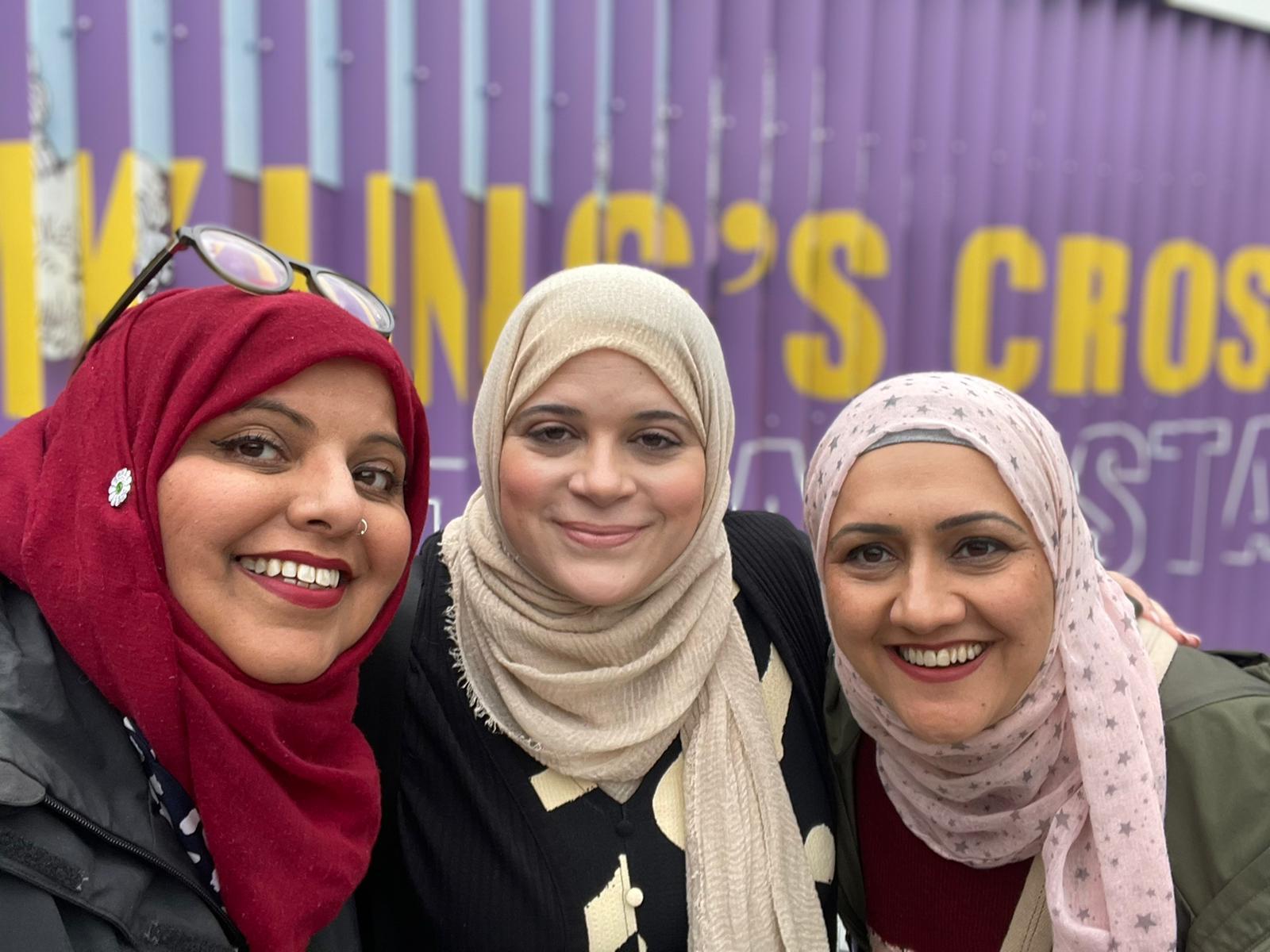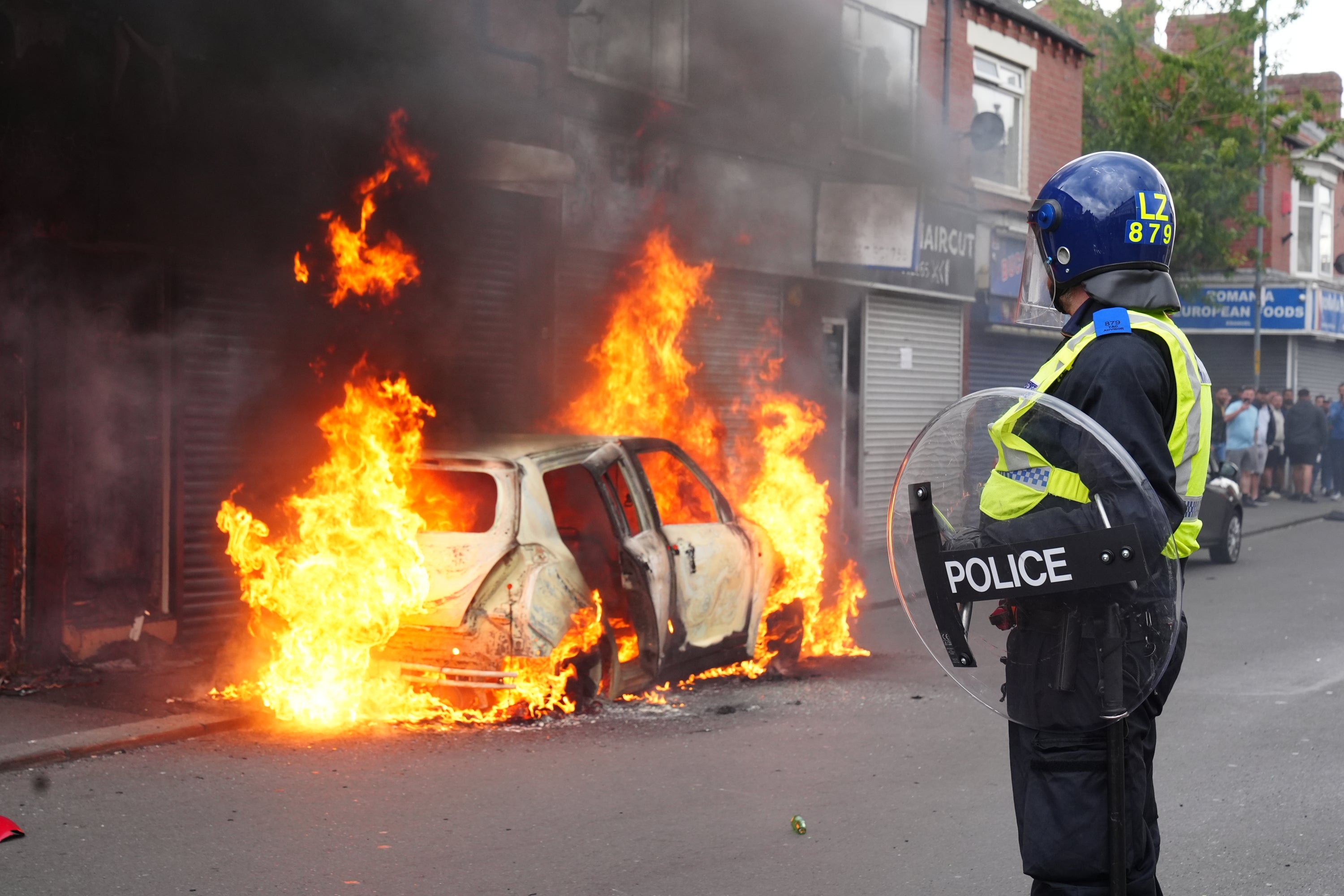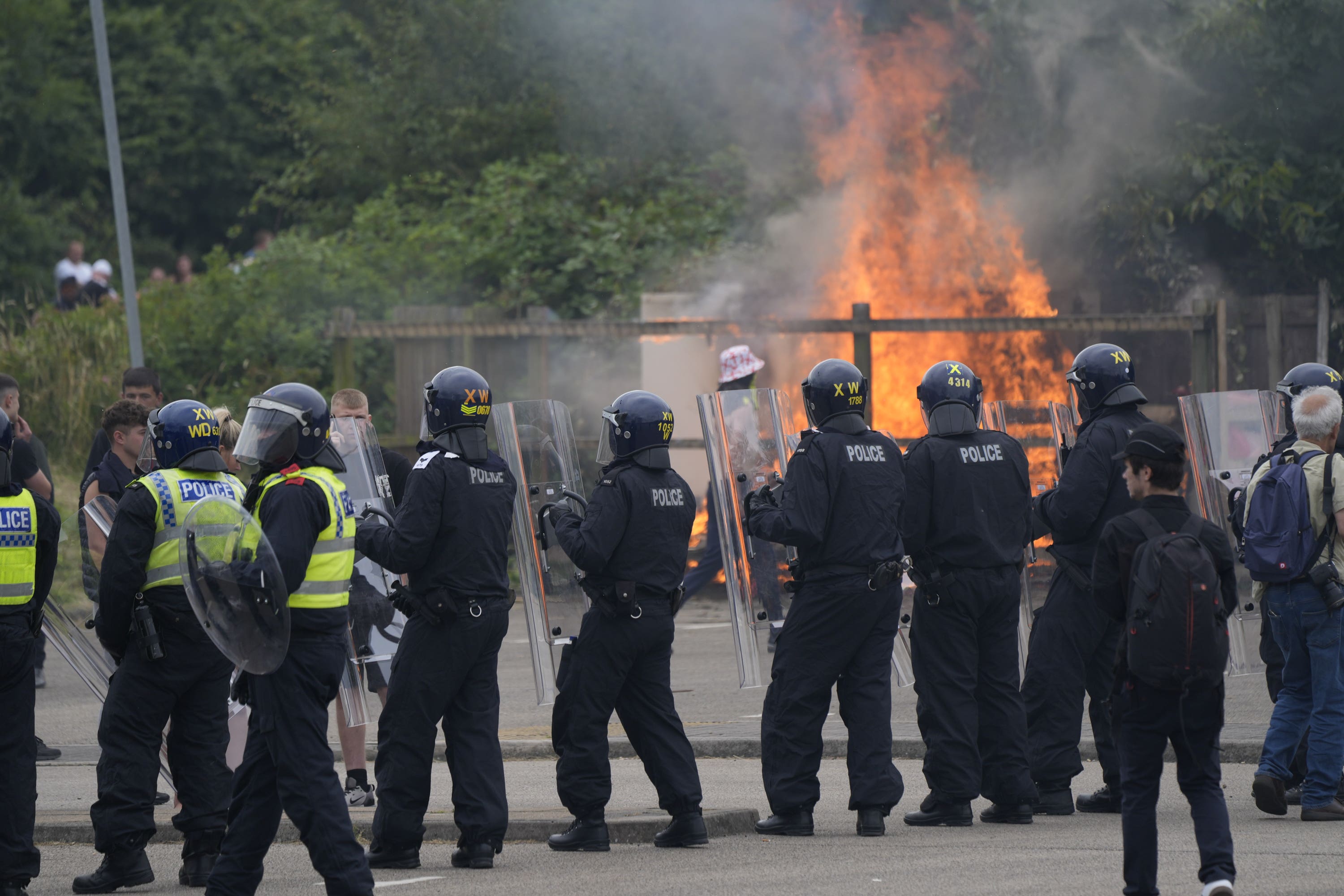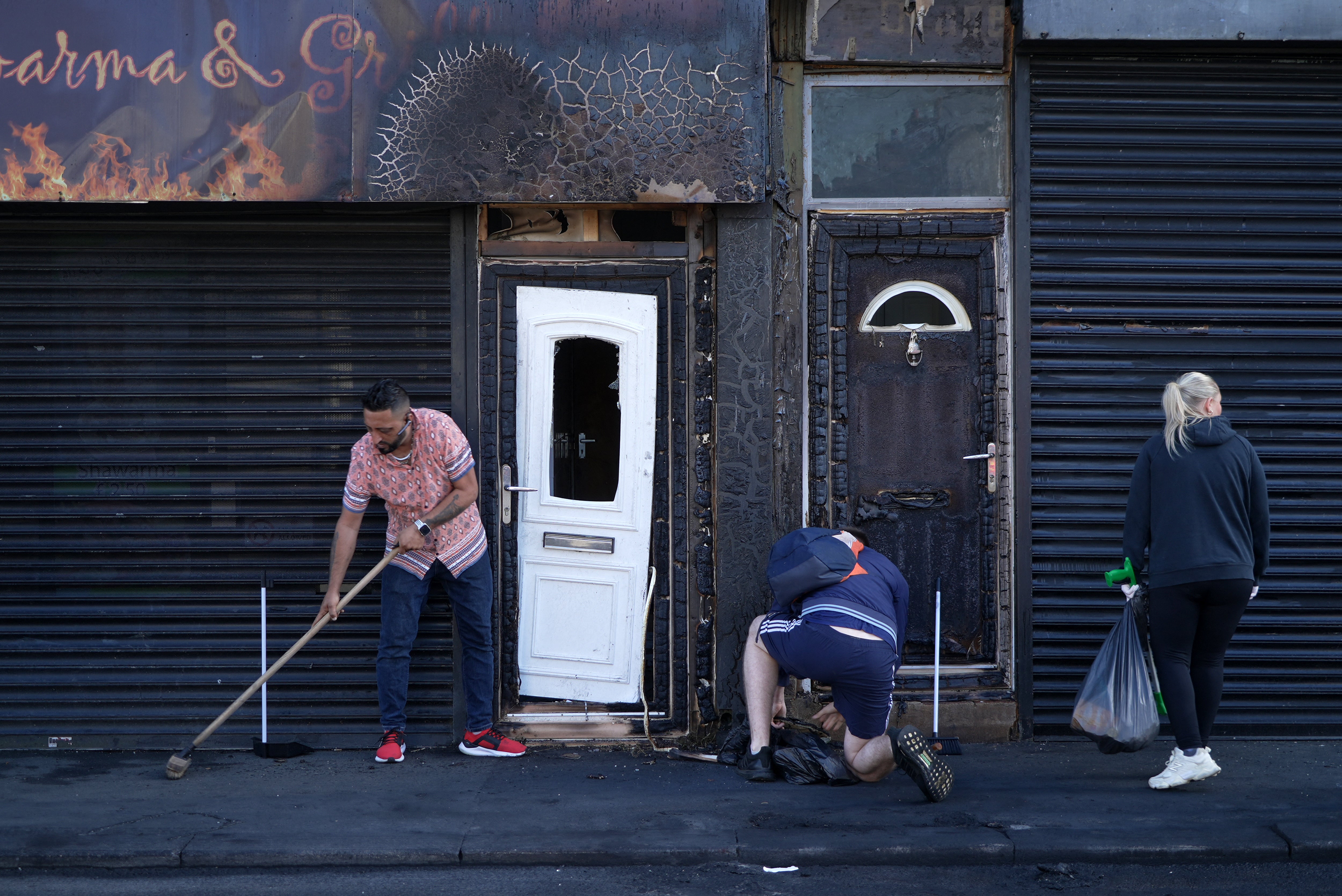Anti-racism Muslim group urge government to ramp up safety commitments for women after riots
Exclusive: The Three Hijabis are calling for gendered Islamophobia to be acknowledged as a specific form of violence against women and girls at the highest levels of government

A prominent anti-racist Muslim group are urging the government to ramp up its commitment to gender-based Islamophobia, The Independent can reveal.
Muslim communities, including women, are fearing for their lives amid widespread race riots around Britain across the past week which have left dozens of people injured and hundreds arrested.
Shaista Aziz, Amna Abdullatif and Huda Jawad, who are known as “The Three Hijabis” due to their heritage and Islamic religious dress, have been contacted by Muslim women across the country with worries and reports of their hijabs being pulled off in the street.
Yet, there is no specific government strategy in place to safeguard Muslim women, despite the government’s stated “mission” to protect women and girls.
“Muslim women being afraid to travel into their town and city centres – making them no-go areas for them, is gendered Islamophobia,” a statement, first seen by The Independent, from The Three Hijabis says.
“Muslim women have told us that they have changed their daily routine taking care not to be outside of their homes due to fear of being attacked by far-right mobs.
“Muslim women shared their concerns about the safety and wellbeing of their children, brothers, husbands and family members, particularly when attending mosque. Mosques have been the target of coordinated far-right Islamophobic attacks.”
The statement continued: “We call for gendered Islamophobia to be acknowledged as a specific form of violence against women and girls at the highest levels of government.”
The Three Hijabis are also calling on specialist services to advocate for the safety of Muslim women and girls, recognising that it is part of their work to stand up for all women and communities.

Muslim women have also expressed concerns over rumours circulating of them being targets of far-right violence including acid attacks.
“While acid attack rumours are currently unsubstantiated, having the intended impact of sending fear throughout British Muslim communities, pushing Muslim women and girls back in their homes, the aim of misogyny and gendered Islamophobia,” The Three Hijabis explained.
Speaking with The Independent, Ms Aziz, Ms Abdullatif and Ms Jawad have expressed fear for their own safety and that of loved ones due to the race riots.
Ms Jawad, who fled Iraq and came to England as a two-year-old refugee, feels she may well be safer in the warzone that she once left.
“This is triggering because the far right is targeting refugees, as well as Muslims. It feels like many different parts of me are attacked all at the same time,” she said.

“I came to this country because I thought there is rule of law and there were values around respecting humanity and human rights. But it’s very clear that I am probably safer in a despotic regime in the Middle East than here.”
During a press conference last week, prime minister Sir Keir Starmer branded the riots as “far-right thuggery” but stopped short of describing rioters as racist or Islamophobic.
Instead, he mentioned “racist rhetoric” and acknowledged the targeting of Muslim communities, however campaigners including The Three Hijabis don’t think Sir Starmer went far enough.
“I am surprised at the naming of it as racism,” Ms Jawad said.
“I’m surprised at the lack of kind of preparation by the government and why are we always thinking that the only answer is the police, when the police are actually part of the problem? They are the Islamophobes, they are the misogynists and they are the racists.”

“I feel extremely devastated but I’m not surprised at all that this is happening,” Ms Aziz said.
“This is the inevitable outcome of decades of dehumanising Muslims, refugees, migrants and Black people.
“There has been more and more mainstreaming of Islamophobia and the genocide unfolding in Gaza is part of the equation here as well.”
She added: “I feel very emotional because I’m going around telling women in my family to be careful, and men in my family and my friends. I’m telling them not to go out, to be careful.
“I’m terrified; I’m not that type of person and I don’t want to be that person, but there is a real change in the air.”
Ms Abdullatif, a mother of two, echoed this and said she’s asked her daughters to avoid leaving the house.
“I don’t think I’ve ever felt this anxious about going out,” she said.
“In previous iterations, where we’ve had spikes in Islamophobic abuse, I would just show up because we shouldn’t be scared to come out in our communities and in the cities where we live.
“But this feels much more scarier than anything I’ve experienced before in the UK.”
Through lobbying the government and pointing to how local communities around Britain are rallying against the far right, in support of one another, The Three Hijabis feel compelled to resist hateful forces and are heartened by people power.
Ms Aziz said: “We’re moved by how the communities are coming together and how they’re supporting each other; the kindness, the love, the compassion. Not just Muslims towards Muslims; there’s an understanding people have that this is about shared humanity.”
“Part of this conversation needs to shine the light on our resistance as Muslim women,” Ms Jawad said.
“There’s a victim narrative (around Muslim women) that we’re ‘woe is us, come and save us’, and that’s been a part of the very violence that has been perpetrated against us.”
A Labour MP has said the government should define Islamophobia to combat “the racism and vitriol we are seeing by a minority of far-right activists on Britain’s streets”.
The government has been approached for a response.
Subscribe to Independent Premium to bookmark this article
Want to bookmark your favourite articles and stories to read or reference later? Start your Independent Premium subscription today.